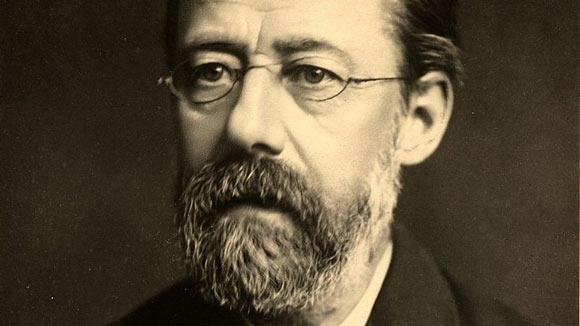
Bedřich Smetana was a Czech composer, known world over as the father of Czech Music. His music would be identified in parallel to his country’s race towards independent statehood.
Bedřich Smetana was born in Litomysl, near the border between Bohemia and Moravio on 2nd March 1824. When he turned five years old, his father started teaching him how to play the piano. He played the piano extraordinarily well, and at age six he performed publicly at his hometown’s academy of philosophy. Smetana had a difficult school life, he transferred schools many times and he shared residences with many of his family members in the process. However, this was not to hinder his progress with the piano. He regularly composed piano duets for his female companions, some of which were romantic pieces. Smetana started his formal music training under Josef Proksch, who was head of the Prague Music Institute at the time. Smetana support his financial needs by teaching music at the noble Thun household, and also by teaching many private students and by performing in chamber concerts. He was also seen as a national revolutionary at the time, for he wrote music in support of Czech nationalism during 1848. Smetana started his famous piano institute in 1848, which received guidance and support from famous personalities such as Franz Liszt and Ferdinand I of Austria. However, in Prague, his piano institute was Smetana’s only form of success, as his music didn’t gather much attention. So he left for Gothenburg in 1856, where he soon became the conductor of the Gothenburg Society for Classical Choral Music. He only return to Prague for his wife, who was very ill at the time.Smetana wrote ‘The Brandenburgers in Bohemia’ in 1863, which won him the Harrach’s Opera Competition in 1866. The brandenburgers piece was received extraordinarily well and was said to have ‘all the germs of Smetana’s operatic art’. Smetana then wrote his second opera ‘The Bartered Bride’, which would later on in his life grant him international repute and recognition, so much so that it was to be performed over a hundred times during his life, a feat that was never known to a Czech opera before. Between 1876 and 1882, Smetana would write three operas and a very well received String Quartet which was called ‘From my life’.
Perhaps he was most known for his cycle of six poems which he called Ma Vlast, or ‘My Fatherland’. Ma Vlast was often portrayed with the opera Libuse to as ‘symbols of the consummating national struggle’. It was considered to be an analysis of Czech history, a description of its beautiful scenery, and Smetana’s direct view of the greatness of the Czech nation. Bedřich Smetana died on 12th May 1884 in a mental asylum. In Czech history, only Antonin Dvorak would challenge his position as the most influential musician of the country, even so, he would be remembered as the musical father of the nation, for he was the first musician to ascribe his music to Czech Nationalism.